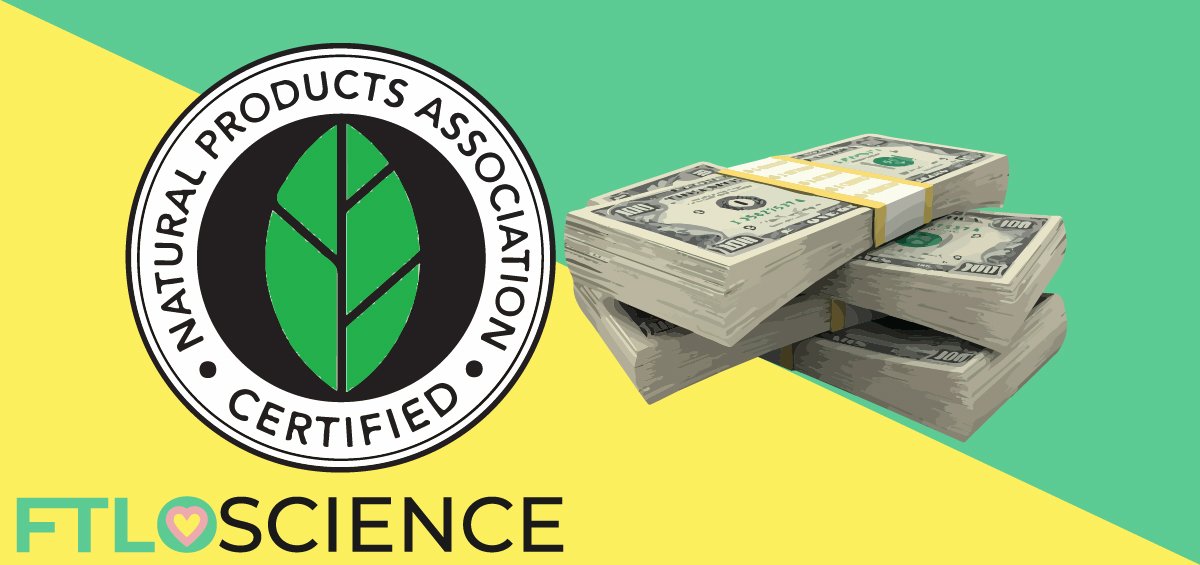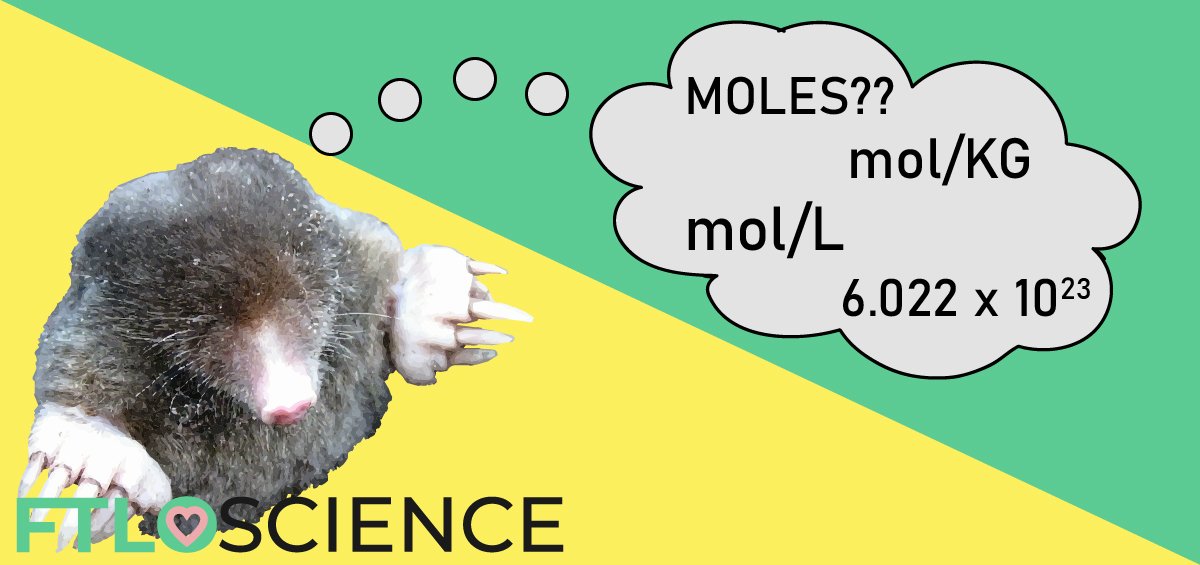Within the food, cosmetic and personal care industries, there exists a growing demand for ‘natural’ or ‘organic’ products. However, the public’s desire for natural ingredients and sources is based on the clever marketing of misinformation and pseudoscience. And leading this profit-driven exploitation of consumers is the Natural Products Association (NPA) and their use of The Natural Seal.
Fueling The Demand For ‘Natural’ with Misinformation
On the surface, it might seem that products and ingredients obtained from natural sources are better for our health than those processed in a factory. After all, humans have lived off the land for thousands of years prior to the advent of industry and modern science. This argument forms the basis of a worrying trend that has taken root in society.
Companies always try their best to appeal to consumers, and jumping on the ‘natural’ bandwagon is no exception. They do this by emphasizing their use of natural ingredients in their products while downplaying their reliance on synthetic or processed chemicals. But without an overarching authority to determine what constitutes ‘natural’, who can we trust?
Noticing this business opportunity, organizations like the Natural Products Association try to turn this trend into a tidy profit. By being an ‘authority’ on ‘Natural Products’, they provide a service to consumers by identifying products that are natural, so that the consumers don’t have to do research into the products themselves. Of course, this service comes at a cost.
But in order to keep up their scam, these organizations must ensure that consumers continue to believe that natural products are superior to their laboratory-made counterparts. If the public’s demand for ‘natural’ drops, they can no longer sustain this very profitable ploy.
What is Natural, Anyway?
Natural Doesn’t Mean Safe
Clever marketing and advertising by these companies and organizations have certainly played a big part in the public’s association of ‘natural’ with ‘healthy’ and ‘safe’. Plant-based ingredients are often viewed favorably, while even the word ‘chemical’ bears negative connotations. However, many ‘naturally’ occurring substances are toxic, such as ricin from the seeds of the castor oil plant, cyanide from almonds and methanol in fresh fruits.
Conversely, classes of chemicals like parabens, phthalates and dyes carry negative connotations despite them having no inherent health risks. We need to understand that substances made in a lab or factory aren’t automatically unhealthy or unsafe. Everything in this world is made from chemicals, and its chemical structure determines its effects, regardless of whether it’s found in nature or synthesized in a lab.
One thing to note is that extracting chemicals from natural sources often entails poorer quality and purity. Animals and plants synthesize a whole range of compounds, hence extracting and isolating just one are extremely challenging. In the laboratory, synthetic processes are tightly controlled and there are fewer chances of toxic impurities popping up in the final product.
Natural Doesn’t Mean Sustainable
The extraction of certain chemicals from natural sources is sometimes unsustainable. Palm oil often falls under the umbrella of ‘natural’ ingredients by groups advocating for such products. While extracting oil from palm trees is sustainable by most standards, they are often grown on land that has been cleared of existing rainforests.

Obtaining ingredients from nature means affecting it in some way, leading to arbitrary rules to determine if practices are sustainable. Furthermore, there is a finite amount of natural resources, which quickly becomes unsustainable when extracted in commercial quantities. Distilling oil for chemical fragrances, for example, require hundreds to thousands of times by weight of flower petals.
Synthetic or laboratory-made chemicals can offer more sustainable and cost-effective solutions, especially at large manufacturing scales. They can be sourced from crude oil byproducts or processed from commonly farmed crops, reducing the impact on natural resources.
The Natural Products Association
Founded in 1936, the Natural Products Association (NPA) is the largest and most well-known ‘natural products’ organization. Based in the U.S., they employ scientists and doctors to provide their seal of approval to tens of thousands of retailers and manufacturers.
The Natural Seal
In order to generate profits from the public’s demand for natural products, the NPA came up with its own set of guidelines and rules that are used to determine if a product is indeed ‘natural’. Companies that follow these guidelines and are willing to fork out the money may use The Natural Seal on its products.

In the U.S., the Food and Drug Administration (FDA) oversees the safety of food products. However, they are much more relaxed when it comes to marketing claims. As long as food and cosmetic products don’t make claims to be able to cure or treat diseases, they are free to insert logos like The Natural Seal on their products. Along with the label, companies make of use taglines such as ‘less harmful to skin’ or ‘no artificial chemicals used’ in their products.
Some even take this further, using unsupported claims like ‘healthier to skin’ or ‘body-fat reducing’ to appeal to customers. This strategy is commonly employed by shady companies to bypass regulatory loopholes, marketing products like alkaline water using less-than-scientific health claims.
Certification and Cost
If a company wants to use The Natural Seal on their product, they must pay the Natural Products Association between US$1500 to US$3000. Getting individual ingredients certified costs between US$500 and US$2600 per ingredient. Furthermore, these certifications by the NPA only last for 2 years, so renewing their license generates another payday for the organization.

The NPA and similar organizations spread false marketing claims that synthetic, laboratory-made compounds are harmful to our health or are unsustainable. Consumers then become conditioned to look for ‘natural’ in their food, cosmetics, hair and skincare products. Retailers and manufacturers are pressured into paying for the use of The Natural Seal on their products so that they remain appealing to consumers.
They are also forced to turn to naturally occurring ingredients, compromising on safety and sustainability, likely at higher price points than artificial ingredients. The cost of certification and sourcing ‘natural’ is then transferred to the consumers, many of whom are content with paying a premium for such products.
Who Really Benefits From the NPA?
The NPA and its use of The Natural Seal amongst other ‘products’ are driven by misinformation and pseudoscience, altering public perceptions to create value for themselves. Manufacturers pay the NPA while consumers bear the added cost. Clearly, the only beneficiaries of such schemes are the organizations that created them.
Just like the Non-GMO Project, the marketing ploy that feeds off the public’s fear of genetic modification, the NPA is fueled by our misguided demand for ‘natural’ ingredients. With no guarantees on safety and sustainability, buying products with The Natural Seal confers no benefit to the consumer.
The NPA’s criteria of what constitutes ‘natural’ are arbitrary, conjured with only their profit-driven interests in mind. If we really care about the environment, we should instead advocate for reducing the strain on natural resources, replacing raw ingredients with synthetic substitutes that are cheap, sustainable and eco-friendly.
About the Author

Sean is a consultant for clients in the pharmaceutical industry and is an associate lecturer at La Trobe University, where unfortunate undergrads are subject to his ramblings on chemistry and pharmacology.




